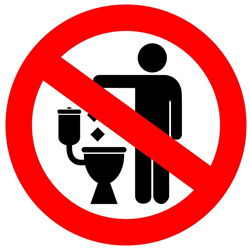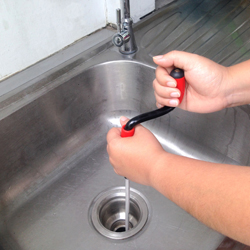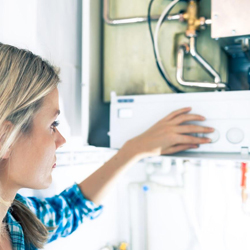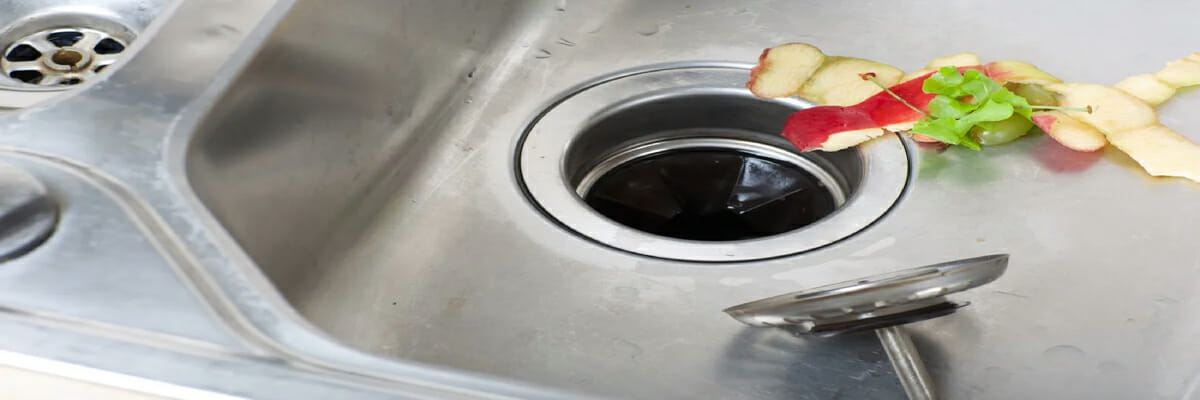Plumbing emergencies can cost you hundreds of dollars in line repairs and water damage. You can prevent this stressful situation by taking good care of your plumbing system. Keep an eye on your pipes, clean your drains properly, and avoid damaging exposed pipes.
Even if you take the best care you can, plumbing emergencies happen. You can call Damien McEvoy Plumbing at (02) 8599 4593 to have a professional plumber come and help with any emergencies that may arise.
1. Don’t Put Improper Items Down the Drain

If you have a garbage disposal, know what it can handle and what it can’t.
Having a garbage disposal does not mean you can pour fats down the drain, and disposals are not intended to take large items like corn husks, fruit pits, or bones.
2. Keep an Eye on Your Pipes
Check your pipes regularly for small leaks to ensure that you quickly notice issues with your home’s plumbing system. Even a small water drip can cost you a significant amount if left for long enough.
Look under all of your sinks, check around your water heater tank, and keep an eye on toilets and anywhere else in your home you know you have water pipes.
Try to remain aware of your standard water pressure. If you feel your water pressure has dropped, there may be a leak somewhere in your system.
3. Clean Your Drains

Using a drain snake is the best way to clean and clear your drains. Drain snakes are especially important for bath drains and shower drains to remove hair that builds up over time.
Baking soda and vinegar can keep a kitchen sink clean. The foaming will help push debris through, preventing a clogged drain. You can also pour boiling water down your drain weekly to avoid buildup and smells.
Related: How to Unblock an Outside Drain in 4 Easy Steps
4. Avoid Drain Chemicals
While cleaning your drains is important, you should avoid using chemical cleaners. Harsh chemicals can damage your pipes over time, which will eventually result in plumbing problems.
If you don’t want to snake your drains, you can use baking soda, which is less harsh than most store-bought chemical cleaners.
Additionally, chemicals to clear your drain may not run through if you have a clogged pipe. Many of these chemicals are volatile and dangerous for the eyes and lungs.
5. Maintain Your Water Heater

Water heaters should be drained every six months to a year (depending on your hot water use) to remove the sediment buildup, which can cause them to malfunction.
Most water heaters have a vacation setting. You can change this setting on the heat dial. It is usually labeled ‘VAC’ or ‘VACATION.’ The vacation setting keeps the pilot light on but won’t heat water, minimising wear, tear, and sediment buildup.
6. Be Careful With Exposed Pipes
Avoid banging on, hitting, or hanging belongings on exposed pipes, including your shower head. Extra weight puts stress on the pipes, which may break and flood your home. Additionally, the hot water supply line may be warm to the touch, especially if your water heater is not well maintained.
Know What To Do in an Emergency
Always be prepared for a severe plumbing problem. Whether you need to fix an overflowing toilet or deal with a significant leak, it’s essential to know the steps to take to minimize damage.
Always know where your valves are for every water line. Each toilet and sink should have a valve, along with your water heater. Turning off the water as soon as possible will prevent further damage and prevent you from needing expensive repairs.
You should keep the number of a local plumber on hand and know whether they are available for emergency hours. Be prepared, know what constitutes calling an emergency plumber, and what can’t wait until the next day.
Related articles:
- 6 Things You Can Do in Plumbing Emergencies
- What are the Factors that Affect Emergency Plumbing Cost
FAQs
Is a Plumbing Leak Considered an Emergency?
Yes, a plumbing leak is considered an emergency.
If you have a leak or a burst pipe, turn off the water and call a plumbing professional immediately.
Does a Clogged Toilet Count as an Emergency?
No, a clogged toilet does not usually count as an emergency.
Having a blocked drain, whether a toilet or a sink, does not mean you need to hire emergency plumbers. These problems can usually wait for a regular plumber.
What Do You Do in Case of a Plumbing Emergency?
In case of a plumbing emergency, turn off the water in the affected area and call a plumbing service as soon as possible.
Know what to do in an emergency, and keep the number of an emergency plumber on hand in case anything comes up.
Final Thoughts
Taking good care of your plumbing system, including monitoring your water heater, checking for leaks, and cleaning drains, can help prevent plumbing emergencies as much as possible.
Even when you do everything you can to prevent plumbing emergencies, serious plumbing problems may arise. If you ever experience a plumbing disaster, call Damien McEvoy Plumbing at (02) 8599 4593 for your plumbing needs at all hours.


 Enquire
Enquire